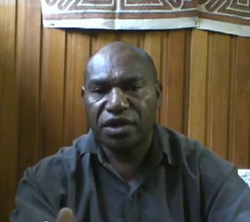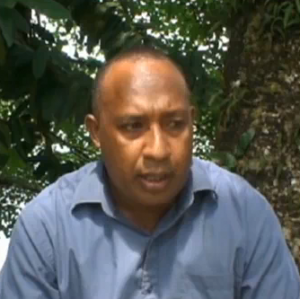GRAIN | 13 May 2010
Foreign donors are promoting land registration in Papua New Guinea (PNG) to facilitate a farmland grab, under the guise of agricultural development. Aid agencies, such as AusAid under its "Making Land Work Initiative", are ramping up the push to reform customary land tenure in order to commodify rural lands in PNG and throughout Melanesia and turn them over to foreign investors."We see a new trend, where huge tracts of land are being converted to oil palm and cassava plantations," says Kenn Mondiai of Partners with Melanesia, based in Port Moresby. "Foreign companies are coming in under the guise of agricultural development, but all this is taking away land from our people."
In 2009, South Korea's Changhae Tapioca (PNG) Ltd, acquired at least 13,000 hectares of land in PNG's Central province to plant cassava for ethanol production under lease-leaseback arrangement. This was on top of about 37,000 hectares the company planted the previous year. Another company, Mekeo Hinterland Holdings Ltd, acquired 116,400 hectares of customary land for palm oil production in 2009. The lease (for 99 years) was reportedly given to the company without the knowledge and and involvement of customary landowners.
Thus far, the government of PNG has already alienated 2.4 million hectares of customary land for large agricultural projects, mostly oil palm, under the lease-lease back programme. In this arrangement, landowners lease the land back to the State who provides a suitable investor to develop the land.
"Local people are being pushed off the most fertile soils so that companies can cultivate oil palm for export," says Howard Sindana, of the Bismarck Ramu Group (BRG), based in Madang Province.
Under pressure from donors, in March 2009, the Parliament of PNG passed two bills that ushered in a historic reform of the country's land tenure law. These are the Land Registration (Customary Land) Act and the amended Land Groups Incorporation Act. Under these laws, Papua New Guineans who own land under customary tenure can register their land with a state body, facilitate formal leases of the land, and borrow money from banks using these long-term leases as collateral.
The people of PNG see this reform as a direct assault on their livelihoods, cultures, environment and economies. Land registration for them is about privatising land, otherwise held communally for generations, to accommodate foreign investments on food, energy, and mines, at the expense of the local population.
"It's all about a big business agenda," says Steven Sukot of BRG. "They want more land, so they came up with all this manipulations through legislative changes in the country's land use policies."
"The West sees land as a commodity for sale, but, for us Melanesians, land cannot be sold," says William Longgar of the Melanesian Institute. "Those of us who sold their lands are now beggars on their own lands."
Going further:
- AID/WATCH, In Defence of Melanesian Customary Land, April 2010
- GRAIN, "Land registration in PNG: a march towards agricultural development or clearing the way for land grab? A short video", May 2010 .













